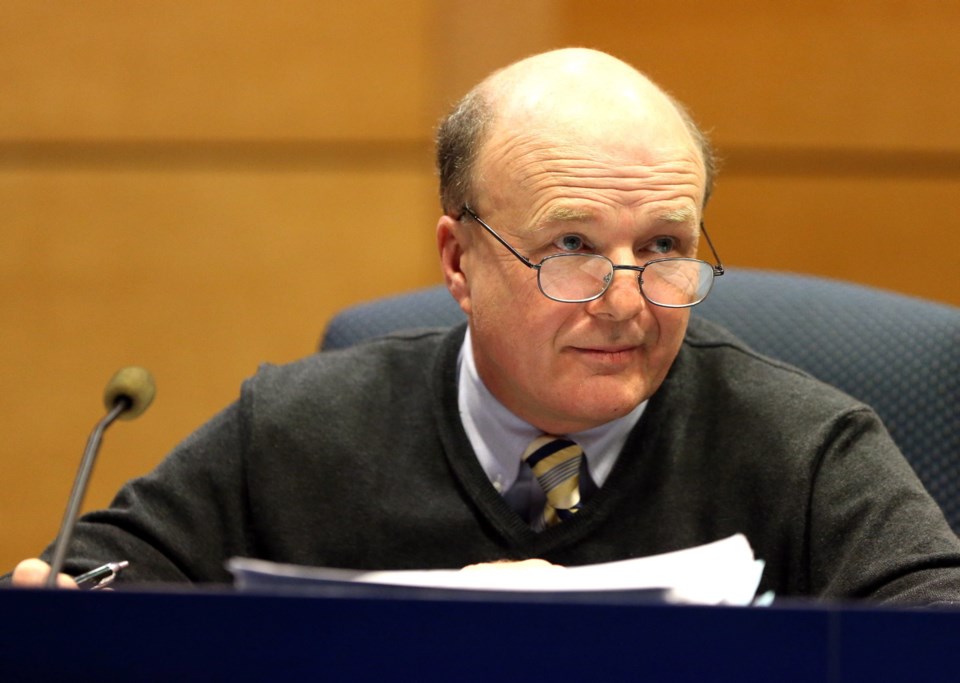The Capital Regional District will continue efforts to create a regional transportation service but has backed off threats seen as forcing municipalities to participate.
View Royal Mayor David Screech and Victoria Coun. Ben Isitt had introduced a motion calling for a counter-petition process if that’s what it takes to create a regional transportation service.
Under a counter-petition process, a new regional transportation service would be created — with funding and participation from all 13 local municipalities — unless 10 per cent of eligible voters in the region sign a petition against it.
After a lengthy and at times testy debate Wednesday, directors dropped the counter-petition element and voted instead only to have CRD staff “take the necessary measures” to establish the service in the next six months.
“I’m amazed. I’m disappointed. I’m actually embarrassed to be part of this board,” Screech said.
The decision leaves the CRD no further ahead than it was 37 months ago when it identified transportation as a priority, Screech said, adding that given the distrust of the CRD by West Shore communities, the likelihood of their buy-in within the next six months is nil.
“I don’t have any confidence that we will get 13 [municipalities] to buy in [to the service voluntarily],” he said.
“I think that [what] everyone needs to ask themselves, as they look at the gridlock that is happening in this region, is: Is the status quo working? Really. Think about that. Is the status quo working? The answer is pretty darn clear: No. We need a change.”
Saanich Mayor Richard Atwell called the counter-petition process divisive.
He suggested a more positive approach would be to hold a region-wide referendum on the service with the next municipal elections in October 2018.
But other CRD directors saw that as only delaying the decision for a year. Ultimately, chairwoman Barb Desjardins ruled the suggestion out of order as the CRD has no authority to force a municipality to put a question on a municipal ballot.
CRD staff had proposed a new service that initially would consolidate existing CRD services. It would involve no tax increase but would provide a unified regional voice on transportation issues.
But the proposal hit roadblocks in several communities, especially in the West Shore, concerned about possible future costs, loss of control over local infrastructure and the potential that decision-making would be core-centric. Seven jurisdictions within the CRD have either voted against or not responded to the proposed CRD service.
“I don’t think you make any friends by threatening when people have already said they don’t want to participate,” said Langford Coun. Denise Blackwell. While Langford council is on record opposing the proposal, the council and the mayor are open “to having a regional voice somehow.”
“But when this came to our council, at the time the figure that was included in the report said $10 million. When they look at $10 million, they say how can it possibly be $10 million when all we need to do is say to the province we need some HOV lanes and a couple of other things,” Blackwell said.
Sidney Mayor Steve Price was admonished by Desjardins to be respectful when he suggested it was “bizarre” that municipalities in the West Shore seemingly didn’t want to solve the Colwood Crawl.
“There’s been no public outcry for the CRD board not to address the transportation crisis that we have in the community. What they are looking for us to do is actually do something like install this service and solve the problem. They don’t want us to sit around here and bicker all day long and do absolutely nothing,” Price said.



